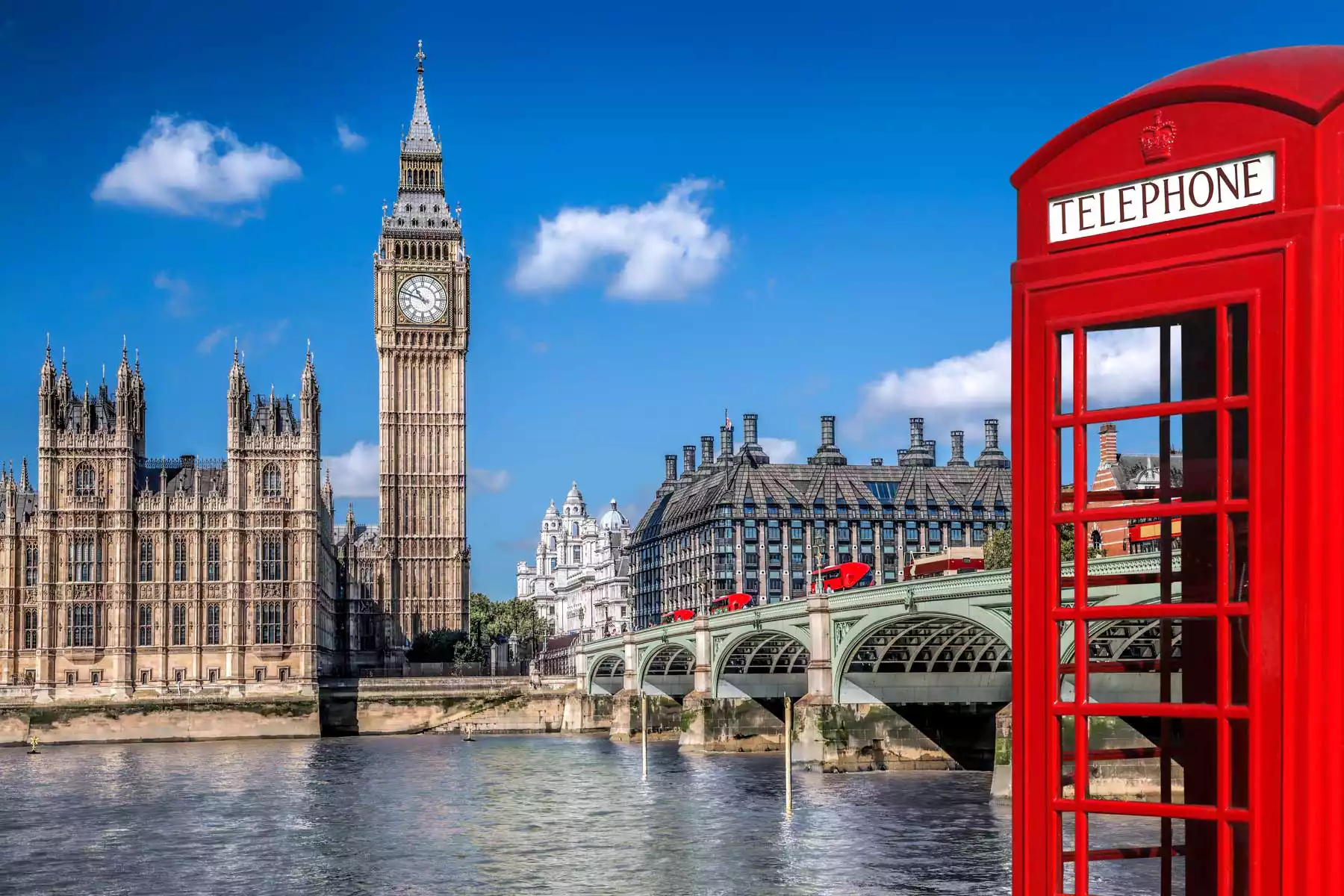1. Why Visit the United Kingdom Now
2. Discovering London
3. Exploring Beyond the Capital
4. Unique Attractions of Northern Ireland and Wales
5. Creating Your Perfect Itinerary
There’s never been a better time to plan a trip across the pond.
For a nation that prides itself on stoicism, the United Kingdom has had a tumultuous decade. Once, Scottish independence seemed like the most pressing question of our age. Then there was Brexit. Now we have a new head of state for the first time in 70 years: a king rather than a queen, a different face on our money, and a fresh set of postage stamps. The soul-searching has been intense. Moreover, the effect has also been invigorating. For travelers interested in treading new territory in old places, the U.K. is currently that perfect combination of familiarity and mystery.
You will most likely fly into London, a truly global city. St. Bede, the eighth-century monk and historian, wrote that the island contained five nations, each with its own dialect: English, Common Brittonic, Scottish Gaelic, Pictish, and Latin. Today, there are more than 300, and you can hear them all on the London Underground — or in restaurants aboveground, where their corresponding cuisines are served. This is a city where world history has coalesced (sometimes regrettably) and thousands of years of art, architecture, and plunder are displayed in its museums, galleries, and public squares.

However, there is far more to the U.K. than its most famous metropolis, and much of it can be seen with the aid of the nation’s proudest invention: the railway.
Board at King’s Cross Station, in London, and the boroughs soon give way to pasture and, in the mornings, a soft covering of mist. Historic York is less than two hours north. The Romans called it Eboracum, the Vikings Jorvik, and those civilizations feel very present in a town known for beautiful medieval churches, a high incidence of ghost sightings, and a surfeit of pubs.
Today, there are more than 300 languages spoken, and you can hear them all on the London Underground — or in restaurants aboveground, where their corresponding cuisines are served.
Step back on that train and it will deliver you to Edinburgh, the city I now call home. It is built across seven hills overlooking the North Sea (three of them extinct volcanoes), and few places combine stark natural beauty and striking architectural grandeur so seamlessly. In the Old Town, you’ll find cobblestoned lanes, castles, and churches, or “kirks.” In the New Town — new being a relative term — there are Georgian boulevards, restaurants, cafés, and boutiques. Always lively, in August, Edinburgh becomes the arts capital of Europe, hosting the Edinburgh International Festival and its irreverent companion, the Fringe.
To the north are the Grampian Mountains. While there are many ranges in the world that are higher, longer, or more imposing, there is something uniquely evocative about these ancient hills. You could take the train to Mallaig, passing over the famous Glenfinnan Viaduct, before exploring the Hebrides, of which the Isle of Skye is the jewel. As you cross the bridge to this island, it is hard not to hum the famous Jacobite anthem, “The Skye Boat Song,” recently revived as the opening theme to Outlander.

Traveling south along the western coast will take you through the Lake District, immortalized by the region’s twin laureates, William Wordsworth and Beatrix Potter. Next, to Manchester and Liverpool, the rival siblings of the northwest of England. Sports fans will know the world-famous football teams, while everyone knows the Beatles. Like London, these cities are truly multicultural, with their eyes open to the wider world. Visit Liverpool’s Albert Dock for a glimpse into Britain’s messy imperial past, or go to Manchester’s “Curry Mile” for our true national dish.
But many, like me, are emphatic that this period of soul-searching must result in a nation that is international, vibrant, and capacious. Consequently, we will welcome you with arms outstretched.
Northern Ireland is across the water. Revitalized and eager for visitors, Belfast has become a popular movie and TV location. Much of Game of Thrones was filmed there, and it is possible to tour the studios and sit on the Iron Throne. Wales is home to impressive Norman castles and gorgeous beaches. It’s a country of poets and singers, from Dylan Thomas to Tom Jones. Or you could travel south through England. The spa town of Bath will impress lovers of Jane Austen, while Oxford and Cambridge have helped shape university culture and intellectual inquiry across the world. The Cotswolds and the Home Counties, meanwhile, offer the quaint villages and rolling hills of “Old England.”

There are so many different ways of organizing a trip to the U.K. You could do it by geography, visiting its most picturesque locations. You could do it by literature, arranging your journey according to its greatest writers: Charles Dickens for London, Robert Burns for Scotland, Daphne Du Maurier for the West Country, William Shakespeare for — well — everywhere. You will be astonished by how much is packed into such a small, accessible country. As for its people? We are still working ourselves out. However, many, like me, are emphatic that this period of soul-searching must result in a nation that is international, vibrant, and capacious. Therefore, we will welcome you with arms outstretched.
Fiona Mozley is the author of the novels Elmet, which was short-listed for the 2017 Booker Prize, and Hot Stew (2021).





